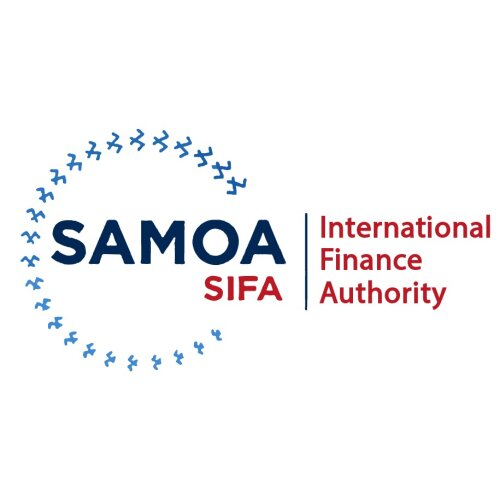Best Renewable & Alternative Energy Lawyers in Samoa
Share your needs with us, get contacted by law firms.
Free. Takes 2 min.
Or refine your search by selecting a city:
List of the best lawyers in Samoa
About Renewable & Alternative Energy Law in Samoa
Samoa is an island nation in the South Pacific that faces unique challenges and opportunities in energy production and supply. Due to its location, Samoa has historically depended on imported fossil fuels. However, increasing costs and environmental concerns have led the country to invest substantially in renewable and alternative energy sources, such as solar, wind, hydro, and bioenergy. The government has set ambitious goals to increase the share of renewable energy in the nation's electricity supply and reduce greenhouse gas emissions. Renewable & Alternative Energy law in Samoa governs the development, implementation, and regulation of these energy sources. It covers land acquisition, environmental impact assessments, licensing, compliance, and incentives to encourage investment and innovation in clean energy technologies.
Why You May Need a Lawyer
Legal assistance is important when navigating the renewable and alternative energy landscape in Samoa due to several reasons. You may require a lawyer if you are:
- Starting or investing in a renewable energy project
- Applying for licenses or government incentives
- Negotiating power purchase agreements or supply contracts
- Dealing with land ownership or lease issues related to energy projects
- Addressing environmental compliance or assessment requirements
- Managing regulatory disputes or compliance investigations
- Protecting intellectual property, such as energy technology or designs
- Facing disputes related to energy project partnerships or community engagement
A qualified lawyer can guide you through the legal processes, help you understand compliance requirements, represent you in negotiations or disputes, and ensure your interests are protected throughout the lifecycle of your renewable or alternative energy project.
Local Laws Overview
Samoa’s legal framework for renewable and alternative energy is continually evolving to meet international commitments and national development plans. Some of the key local laws and regulations include:
- Electric Power Corporation (EPC) Act 2010: Governs the generation, distribution, and sale of electricity in Samoa, including the incorporation of renewable energy projects.
- Renewable Energy Act 2010: Provides guidelines, objectives, and incentives for the development and use of renewable energy resources in Samoa.
- Environmental Impact Assessment Regulations: Mandate that all significant energy projects undergo an environmental assessment before proceeding.
- Customary Land Laws: Address land ownership issues, which are especially relevant since much of Samoa's land is owned communally by families or villages.
- Planning and Urban Management Act: Provides for zoning, land use, and infrastructure development, which impact energy installations.
- Investment Promotion Laws: May offer tax breaks or other incentives for foreign and local investors in the renewable energy sector.
Compliance with these laws is crucial for any party involved in the renewable or alternative energy sector in Samoa. Ignoring legal requirements can result in project delays, financial penalties, or the shutdown of operations.
Frequently Asked Questions
What sources of renewable energy are commonly used in Samoa?
Samoa primarily uses solar, hydropower, and bioenergy. There have also been pilot projects for wind energy and other alternative sources.
Do I need a government permit to start a renewable energy project?
Yes, almost all renewable and alternative energy projects require permits and regulatory approval from various authorities, such as the Electric Power Corporation and the Ministry of Natural Resources and Environment.
Are there incentives for investing in renewable energy in Samoa?
Yes, Samoa offers several incentives, including tax breaks and technical support for renewable energy projects, particularly those that support national energy goals.
How does land ownership affect renewable energy projects?
Most land in Samoa is customary land, controlled by extended families or villages. Securing land rights or leases can be complex and usually requires careful negotiation and legal documentation.
Is an environmental impact assessment always required?
Large-scale projects, or those expected to significantly affect the environment, require an environmental impact assessment as part of the permitting process.
Can foreign investors participate in Samoa’s renewable energy sector?
Yes, foreign investors are welcome, subject to laws regarding investment, land use, and environmental protection.
What kinds of contracts are common in renewable energy projects?
Power purchase agreements, land lease agreements, supply and maintenance contracts, and project financing agreements are all common in Samoa.
Who regulates the renewable energy sector?
Key regulatory bodies include the Electric Power Corporation, Ministry of Natural Resources and Environment, and Ministry for Public Enterprises.
What happens if my project is non-compliant with local laws?
Non-compliance can result in fines, shutdown orders, loss of licences, or other legal actions. Legal advice can help you avoid these issues.
How can a lawyer help with community engagement?
A lawyer can help facilitate negotiations with local communities, draft agreements to ensure fair participation, and resolve disputes that may arise during the development of an energy project.
Additional Resources
If you are seeking more information or assistance regarding renewable and alternative energy matters in Samoa, consider reaching out to these organizations:
- Electric Power Corporation (EPC) - The main electricity provider and regulator of energy projects in Samoa
- Ministry of Natural Resources and Environment (MNRE) - Responsible for environmental approvals and impact assessments
- Ministry for Public Enterprises - Facilitates partnerships and investment in public-sector energy projects
- Samoa Chamber of Commerce and Industry - Offers guidance for investors entering the renewable energy sector
- Scientific Research Organization of Samoa (SROS) - Provides research, technical support, and innovation in renewable energy
Next Steps
If you need legal assistance in the field of renewable and alternative energy in Samoa, start by gathering relevant information about your project or inquiry. Identify any land issues, partnerships, or government applications you need to address. Next, consult with a lawyer who specializes in energy law or has experience with Samoa’s renewable energy projects. Bring any documents or correspondence you have related to your issue, and be prepared to discuss your objectives and any concerns you may have.
A legal expert can guide you through compliance requirements, represent you in negotiations, help secure permits or incentives, and resolve disputes. Taking these steps can help you navigate Samoa's evolving legal landscape for renewable and alternative energy successfully.
Lawzana helps you find the best lawyers and law firms in Samoa through a curated and pre-screened list of qualified legal professionals. Our platform offers rankings and detailed profiles of attorneys and law firms, allowing you to compare based on practice areas, including Renewable & Alternative Energy, experience, and client feedback.
Each profile includes a description of the firm's areas of practice, client reviews, team members and partners, year of establishment, spoken languages, office locations, contact information, social media presence, and any published articles or resources. Most firms on our platform speak English and are experienced in both local and international legal matters.
Get a quote from top-rated law firms in Samoa — quickly, securely, and without unnecessary hassle.
Disclaimer:
The information provided on this page is for general informational purposes only and does not constitute legal advice. While we strive to ensure the accuracy and relevance of the content, legal information may change over time, and interpretations of the law can vary. You should always consult with a qualified legal professional for advice specific to your situation.
We disclaim all liability for actions taken or not taken based on the content of this page. If you believe any information is incorrect or outdated, please contact us, and we will review and update it where appropriate.
Browse renewable & alternative energy law firms by city in Samoa
Refine your search by selecting a city.











